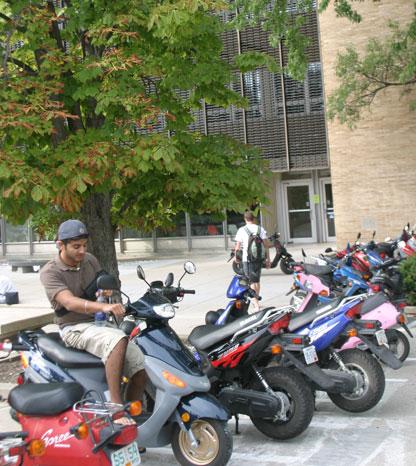After Madison City Council passed a new ordinance in early August restricting moped parking, the University of Wisconsin campus community felt as though the City Council did not take students into consideration.
The ordinance, set to take effect on Jan.1, 2018, will categorized mopeds as motorcycles, which means they can no longer be parked on public sidewalks or terraces. Those who violate the ordinance will be issued a $60 fine.
A petition on change.org was posted to multiple student Facebook groups by UW alum Ali Pelletier, who still lives and works in the UW area. The petition, which protests the ordinance, has received more than 1,100 signatures as of Thursday night.
The petition encouraged students to contact their City Council members to voice their opinions.
“This new law will affect moped and car owners alike, as mopeds will begin occupying already limited street parking spaces,” Pelletier said in the petition.
The timing that City Council passed the ordinance as a reason student voices were not taken into consideration, Pelletier said. Since it was passed before the school year, many students were not aware it was up for consideration.
“Clearly the City Council does not care about its resident student population,” Pelletier said.
Pelletier said many students would be affected, as there are more than 2,000 mopeds registered in the city of Madison.
David Dryer, the city’s traffic engineer, said this does not include the mopeds registered to college students in their hometowns.
But, the City Council hopes this new ordinance will increase the use of public transit, walking and biking, a sponsor of the ordinance, Ald. Zach Wood, District 8, said.
He hopes the new ordinance will make sidewalks more accessible to the people of Madison as well as students.
“We absolutely anticipated a certain degree of backlash,” Wood said.
Wood said he had conversations with “a number” of students before the ordinance was passed. Moped owners are now upset because they must pay their fair share, Wood said.
Despite the amount of signatures on the petition, Wood does not expect any changes to come about.
Emilie Burditt contributed reporting to this article.


